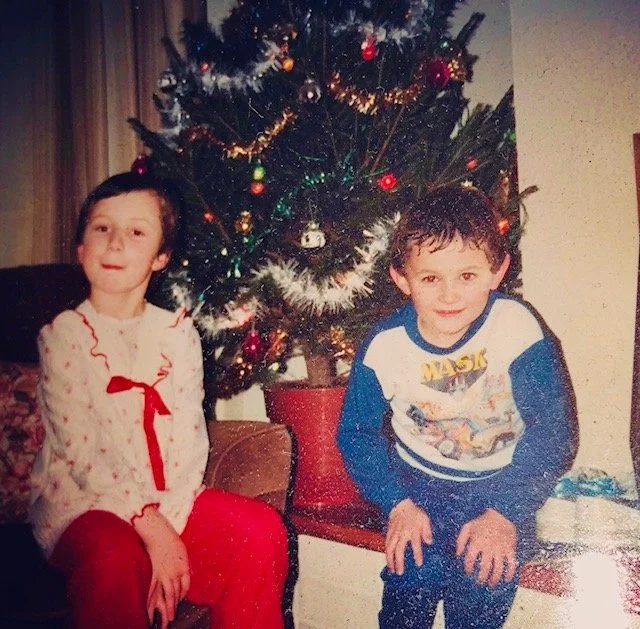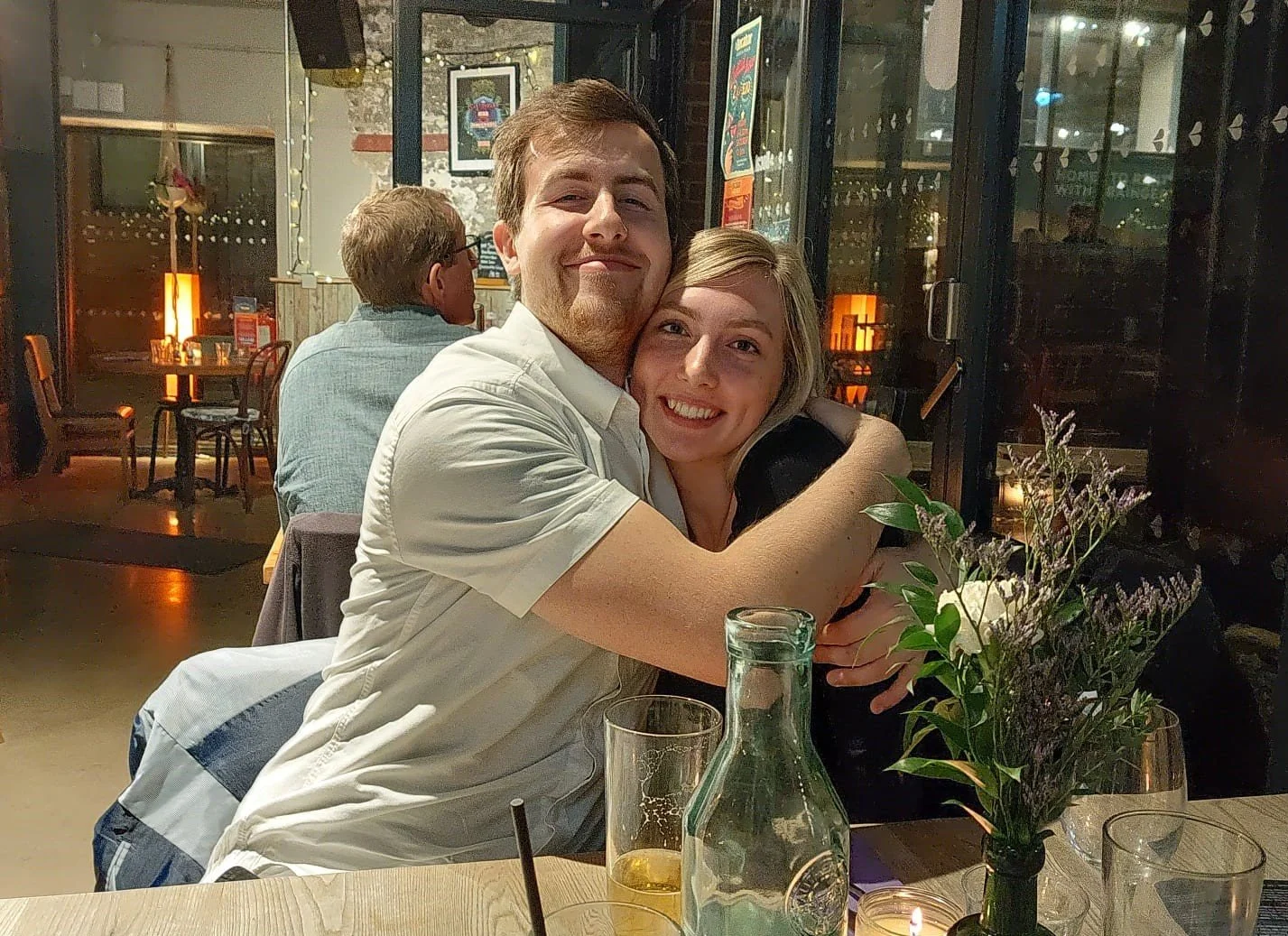Katie’s Story
Katie shares her story about the death of her older sister Aimee, and how her grief has shaped the way she now supports her pupils as a primary school teacher.
On the 21st of November 2005, my sister Aimee died. She was thirteen. I was nine.
Aimee was a strong character- cheeky, mysterious, and endlessly interesting. She had this rare ability to talk to anyone, no matter their age. There was a quiet magic about her. We shared a bedroom, and with that came late-night giggles, whispered secrets, and sibling squabbles. But mostly, it meant we shared our lives- in a real, everyday kind of way. I always felt safe with her. We were a team.
She was diagnosed with Marfans when she was 11 months. One of her symptoms was that her mitral valve in her heart didn’t close properly which caused her heart to work extremely hard. In June 2005, Aimee was advised to have open heart surgery to repair the mitral valve. Initially she had a good recovery, however, in October 2005 she caught a viral infection, which made her heart malfunction. She was rushed into Great Ormand Street Hospital and was put onto the heart transplant list. After two weeks, a replacement became available. However, Aimee had gone through too much trauma and her body rejected it.
The day I found out she had died, I was staying at my Nan and Grandad’s. I walked into the living room and saw both my mum and dad there. That was unusual- I knew instantly something was wrong. They never would have left Aimee alone at the hospital unless something serious had happened. When they told my older sister and me, I couldn’t take it in. It didn’t feel real. I didn’t fully understand what they were saying.
After Aimee died, I felt completely lost and confused. School and friendships suddenly felt distant, like I didn’t quite belong anymore. I became ‘the girl whose sister had died,’ and that label made everything feel even harder.
For the first few years, I found it really difficult to talk about Aimee with my mum and dad. I didn’t want to upset them by bringing her up, even though I was thinking about her all the time. I felt guilty, like mentioning her would cause them more pain- even though I now realise we were all grieving in our own way.
“After Aimee died, I felt completely lost and confused. School and friendships suddenly felt distant, like I didn’t quite belong anymore. I became ‘the girl whose sister had died,’ and that label made everything feel even harder.”
Eventually, I changed schools. That helped me start fresh. I could share my story gradually, once people had got to know me. Looking back, I wish I’d reached out for help more. I wish there had been groups for bereaved siblings. I often felt like no one understood- unless they’d been through something similar.
Grief changed how I saw the world.
I watched the adults I’d always turned to crumble under the weight of their own pain. Nothing felt certain anymore.
As a family, we talk about Aimee often. We still celebrate her birthday and remember her on the anniversary of her passing.
Losing her is something that will always be part of my life, but I’ve learned how important it is to talk, to feel every emotion as it comes- without guilt.
Grief doesn’t go away, but it does change. We find ways to carry the people we’ve lost with us, with love.
My grief journey has shifted over time, and I imagine it will continue to change as life goes on. I often find myself taking a quiet moment to reflect during special occasions- weddings, birthdays, milestones- wondering what Aimee would have been like, or picturing what she might wear to my own wedding. Those thoughts stay with me, softly woven into life’s happiest moments.
“Grief doesn’t go away, but it does change. And we find ways to carry the people we’ve lost with us, with love.”
I try to hold on to the gratitude that I had the chance to grow up with not just one, but two incredible sisters- even if only for a short time. That perspective has helped me in many ways.
Now, as a primary school teacher, I find that my own experience of grief has made me more compassionate and understanding. I’m deeply aware that what’s happening at home can turn a child’s world upside down- even if they don’t show it on the surface. That awareness has shaped the way I support my pupils, and how I listen when they need someone to notice.
I honour Aimee in everything I do. She will always be a part of me. Some days, I feel her presence more strongly- in a memory, a moment, or a feeling I can’t quite explain. And some days, the pain feels a little sharper, a little closer to the surface.
If I could offer any advice, it would be this: you do not need to carry guilt for your sibling’s death.
For a long time, I felt the weight of that unspoken expectation- to “live life for them.” It made me feel like I had to achieve big things, chase every experience, and constantly push myself forward. But over time, I realised that this pressure only left me feeling burnt out and unkind to myself.
The truth is, we don’t have to live for them- we can live with them.
Their memory, their love, and their presence can walk beside us, even in the quietest moments and the smallest achievements. Whether it’s a personal milestone or just getting through a tough day, that can be enough.
So please, be gentle with yourself.
Grief doesn’t come with rules, and healing looks different for everyone. You're doing better than you think.





